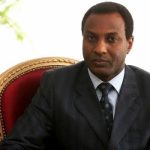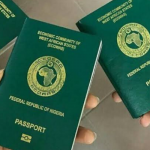
In a bid to reverse the recent coup in Niger, Victoria Nuland, a seasoned envoy and acting deputy secretary of state, engaged in discussions with the country’s military leaders on Monday. However, her efforts yielded no progress, merely a day after the West African bloc ECOWAS’s ultimatum went unanswered.
Victoria Nuland’s visit was shrouded in secrecy until her departure and followed the expiration of ECOWAS’s deadline to reinstate the ousted democratically elected leader, Mohamed Bazoum, by Sunday’s midnight. The West African bloc had warned of possible military intervention if the ultimatum was ignored.
Nuland, who met with military chiefs for over two hours, described the talks as “extremely frank and at times quite difficult.” She extended various options to the coup leaders to resolve the crisis and restore ties with the United States, which, like other Western nations, had suspended aid to Niger. However, her overtures were met with reluctance, and no concrete progress was made towards resolving the crisis.
Notably, the coup leaders declined to engage with Nuland’s requests to meet Niger’s self-proclaimed new leader, General Abdourahamane Tiani, or the detained elected president, Mohamed Bazoum. Despite this, US officials maintained telephone communication with Bazoum.
Brigadier General Moussa Salaou Barmou, newly appointed as the chief of staff, was the military leader Nuland engaged with during her visit. Barmou had previously worked closely with the United States in anti-jihadist operations in the Sahel, a region where both the US and France have maintained a military presence.
During her visit, Nuland also cautioned against Niger following in the footsteps of neighboring Mali by employing Russian Wagner mercenaries, emphasizing the potential risks to national sovereignty.
US Secretary of State Antony Blinken reiterated the importance of diplomatic efforts in resolving the crisis. He emphasized that diplomacy was the preferred approach shared by ECOWAS and the international community.
Niger’s neighboring countries, including Mali and Burkina Faso, which have faced their own military coups and subsequent suspensions from ECOWAS, expressed solidarity with the people of Niger and firmly rejected the possibility of a regional military intervention.
As diplomatic efforts continue, ECOWAS convened for a summit in the Nigerian capital, Abuja, to address the ongoing crisis. Despite the challenges and uncertainties, the international community remains committed to seeking a diplomatic resolution to the situation in Niger.
The military coup in Niger is the latest among several that have taken place in the Sahel region since 2020. Niger, a critical partner in Western efforts to counter jihadist insurgencies, has been instrumental in supporting anti-terrorism operations in the Sahel, with France and the United States both deploying troops in the country to address the security challenges that have plagued the region since 2012.





Comments are closed.